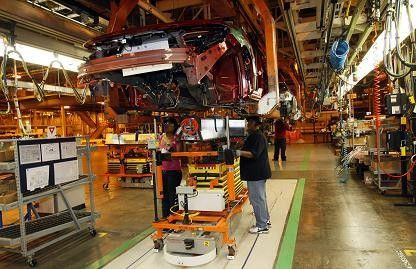U.S. Unemployment - 5 Programs to Increase U.S. GDP and Create Jobs
ANALYSIS

The United States has registered two consecutive quarters of very low GDP growth, 0.4 percent in the first quarter and 1.0 percent in the second quarter, and when combined with sub-par job growth, the risk of a double-dip recession has increased.
The private sector, primarily U.S. multi-national corporations (MNCs), has the ability to get this economy moving again, as sector palayers are sitting on about $2 trillion in cash, but so far in the economic recovery, they haven't deployed capital for new projects/business expansion at an adequate rate.
Hence, with consumption low from sub-par job growth and business investment insufficient, that leaves the U.S. with just the public sector to make up the gap. States/towns are in belt-tightening mode, therefore the last actor-of-size is the U.S. Congress.
Accordingly, taking another page out of economist John Maynard Keynes play-book, the U.S. Government can deploy a series of investment/ public works projects to increasing demand, create jobs, and get the U.S. economy growing at an adequate rate again -- over 3 percent.
Here are a 5 ideas:
1 Infrastructure Rebuilding - Highways, Roads, Bridges. The nation's infrastructure is in a state of disrepair. The U.S. will probably experience more highway bridge collapse like the one that occurred in Minneapolis in 2007, which killed 13 people and injured 145. The nation must rebuild and expand its infrastructure to meet the commerce demands of the 21st Century. Cost: $500-750 billion.
2 Increase in Funding to Secondary Schools, Community Colleges. Congress could establish a special federal education fund to both decrease class size and increase the capacity of community college - the latter of which could serve as a critical re-training resource for the tens of millions of Americans who will need to be re-trained to obtain skills in the technology-based 21st century U.S. economy. Cost: $200-250 billion.
3-Smart Grid/Electric Grid/Internet - Speaking of technology, deploy federal funds to build a smart and the nation will become more energy-efficient. Further, the electric grid needs to be expanded as well, given the fact that a simple heat wave in the summer tends to strain the grid. And expanding broadband access to universal status can only make the economy more efficient and increase job opportunities to those who present lack it. Cost: $150-$250 billion.
4 Airports/Rails/Public Transportation. Anyone who's flown in the U.S recently knows that most of our airports are at/near capacity and/or are antiquated. Simply, the U.S. needs to build more airports and expand/modernize others. The same for the nation's rail system. Further increased funding for right rail and for natural gas/alternative fuel buses will reduce the nation's oil bill and highway congestion. Cost: $200-350 billion.
5 Next-Generation Car. The United States could expand its public-private partnership to speed the introduction of that game-changing, next-generation car, be it electric-, fuel cell- or natural gas-based. The federal government could concentrate on the costly basic research that companies can't afford, and the auto makers could concentrate on design and features. Cost: $50-80 billion.
Public Policy/Economic Analysis: To be sure, the above investments are not cheap. They'd cost $1.1 trillion to $1.68 trillion, but even if only one or two are deployed, that would still increase both U.S. GDP growth and job growth.
Again, it's great when the primary engine of job growth, corporations -- both large and small -- are deploying capital and creating jobs. But they have not done so en masse during the current recovery: they've basically sat on $2 trillion in cash.
Further, the answer is not tax cuts on businesses to increase capital: corporations are awash in capital.
The problem is not capital or product supply: it's demand. Hence, policy makers need to take action -- public or private -- to increase demand, and get this economy moving again, to create the millions of jobs the American people seek.
© Copyright IBTimes 2025. All rights reserved.





















